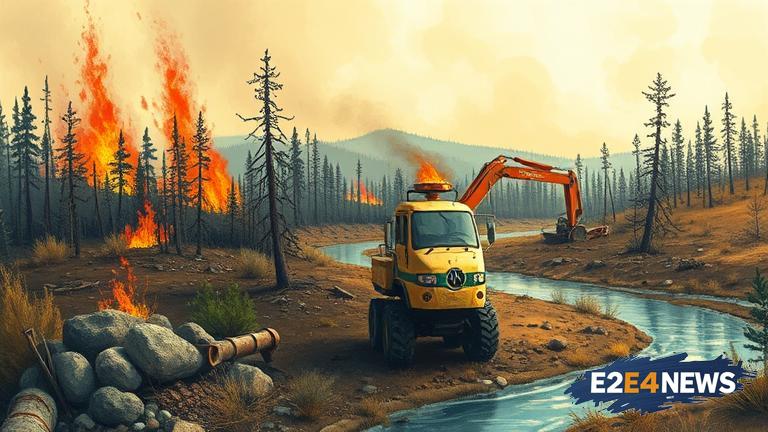The increasing frequency and severity of wildfires in the US have raised concerns about the impact on drinking water utilities. As these disasters continue to ravage communities, experts like Andrew Whelton are being called upon to help mitigate the effects on water sources and infrastructure. Whelton, a renowned expert in the field, has been working tirelessly to provide guidance and support to utilities affected by wildfires. His expertise has been instrumental in helping utilities navigate the complex challenges posed by these disasters. Wildfires can contaminate water sources, damage infrastructure, and disrupt treatment processes, making it essential for utilities to have a plan in place to respond to these emergencies. Whelton’s work has focused on developing strategies for utilities to protect their water sources and infrastructure from the effects of wildfires. This includes implementing measures to prevent contamination, such as using alternative water sources or treating water to remove contaminants. Whelton has also emphasized the importance of communication and collaboration between utilities, emergency responders, and other stakeholders to ensure a coordinated response to wildfires. In addition to his work with utilities, Whelton has also been involved in research efforts to better understand the impact of wildfires on drinking water systems. This research has helped to identify areas where utilities can improve their resilience to wildfires and reduce the risk of contamination. As the frequency and severity of wildfires continue to increase, the importance of Whelton’s work cannot be overstated. His expertise and guidance have been invaluable to utilities and communities affected by these disasters. Furthermore, Whelton’s work has highlighted the need for greater investment in water infrastructure and emergency preparedness measures to protect communities from the effects of wildfires. The impact of wildfires on drinking water utilities is a complex issue that requires a comprehensive approach. Whelton’s work has demonstrated the importance of proactive planning and preparation in mitigating the effects of these disasters. By working together, utilities, emergency responders, and other stakeholders can reduce the risk of contamination and ensure that communities have access to safe and reliable drinking water. The use of alternative water sources, such as bottled water or water from other utilities, can also help to reduce the impact of wildfires on drinking water systems. Moreover, Whelton’s research has shown that the effects of wildfires on drinking water utilities can be long-lasting, with some systems taking months or even years to recover. This highlights the need for sustained support and investment in water infrastructure and emergency preparedness measures. In conclusion, the work of Andrew Whelton has been instrumental in helping drinking water utilities respond to the challenges posed by wildfires. His expertise and guidance have been invaluable to utilities and communities affected by these disasters, and his research has helped to identify areas where utilities can improve their resilience to wildfires. As the frequency and severity of wildfires continue to increase, it is essential that utilities and communities prioritize proactive planning and preparation to mitigate the effects of these disasters. With the right strategies and support in place, utilities can reduce the risk of contamination and ensure that communities have access to safe and reliable drinking water. The importance of protecting drinking water utilities from the effects of wildfires cannot be overstated, and Whelton’s work has highlighted the need for greater investment in water infrastructure and emergency preparedness measures. By working together, we can reduce the impact of wildfires on drinking water systems and ensure that communities have access to the safe and reliable drinking water they need.
